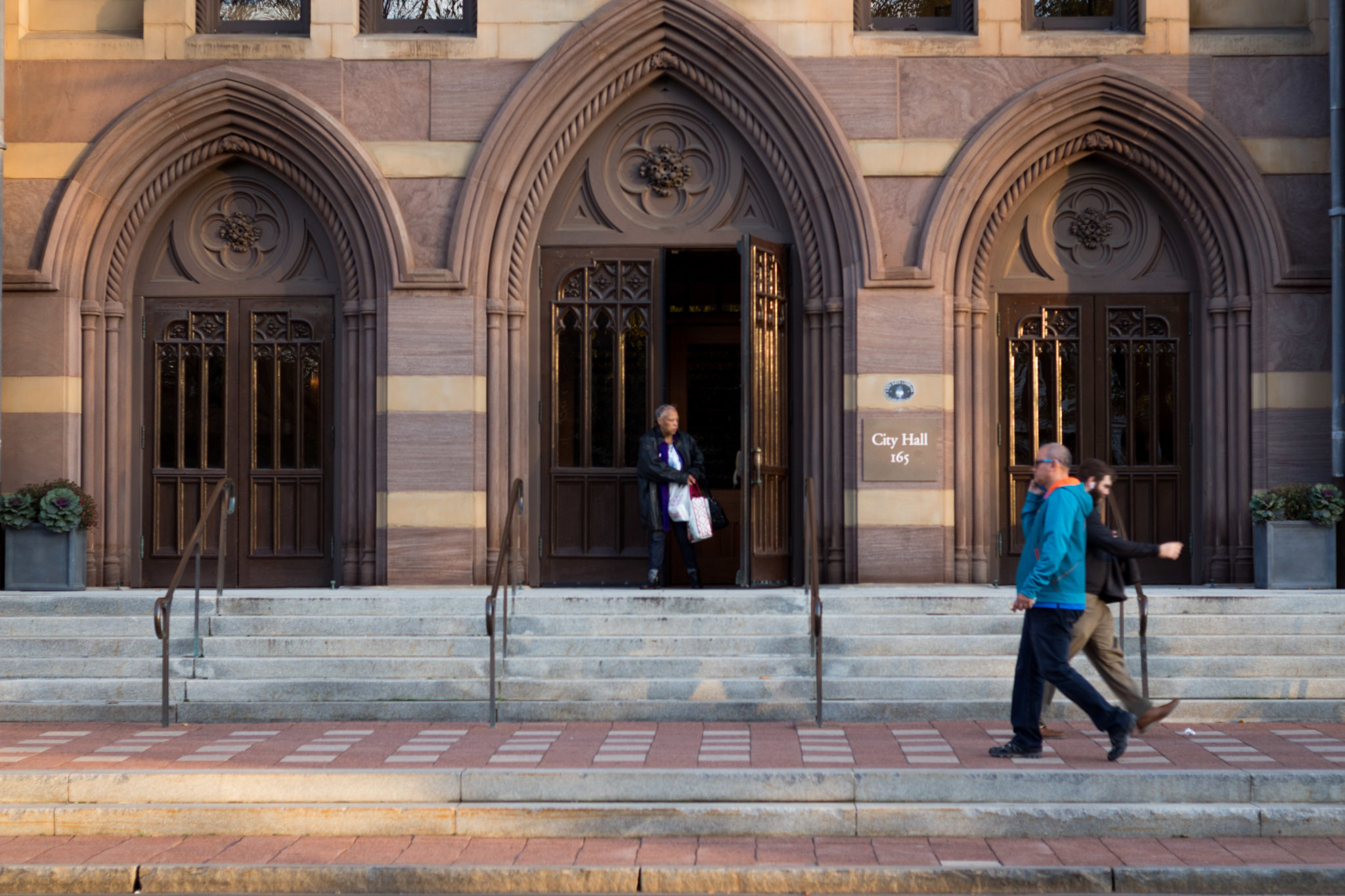
Daniel Zhao, Senior Photographer
After a deeply challenging year for the city of New Haven, Mayor Justin Elicker told the Board of Alders on Tuesday over Zoom that he had cautious optimism for the future of the city. In the second annual State of the City address of his tenure, Elicker called on New Haveners to continue strengthening their community.
In his 2020 address, Elicker laid out an ambitious agenda that has been largely derailed due to the COVID-19 pandemic. In it, he highlighted achievements in jobs and education. Yesterday, the mayor expressed pride in the city for what he called its focus on the “city’s most vulnerable and challenged residents.” While Elicker said the year has undoubtedly been long, the tone of the address was steady and hopeful. On Tuesday he focused on the city’s ongoing pandemic response, racial inequality and policing as well as its looming budget deficit. Elicker, while recognizing the many setbacks of the COVID-19 pandemic, painted a vision of oncoming economic recovery and an end to the pandemic in the near future.
“This year, I would sum up the state of our city as hopeful,” Elicker said. “We have more to go, but the end of the pandemic is in our sights. Our financial challenges are daunting, but our partners give me cautious optimism to have faith [that] we will not only overcome the challenges, but vanquish them.”
According to the New Haven COVID-19 Hub, there have been 9,981 cases of the virus in the city since the pandemic began. Cases have increased by 5,000 since November. Elicker highlighted many of the city’s past and ongoing response initiatives in his speech. He stated that the city was one of the first in Connecticut to offer free testing to all residents and made sure that all students had access to computers, free wifi and other electronics to prepare for online learning. He also thanked New Haven teachers as the months-long debate on the city’s school reopening policy continues.
Elicker also announced that the city has been able to vaccinate over 4,000 residents and has opened several vaccination sites around the city.
“Thank you to our health workers, school nurses and medical reserve corps volunteers for your tireless work over the past year helping New Haven lead during this health crisis,” he said.
Elicker also repeatedly stressed the city’s commitment to its most vulnerable communities, drawing attention to an initiative which would give funding from a $1.5 million program to 23 Black- or Latinx-owned businesses — many of which have been hurt financially in the last year.
He did not, however, bring up the racial disparities in COVID-19 cases and deaths that have faced the city throughout the pandemic.
The mayor also gave substantial attention to the issue of “undoing racism” in the city. He applauded the Board of Alders for its effort to define racism as a public health emergency last week, and announced that New Haven is joining the Government Alliance on Race and Equity. Elicker defined the alliance as a national network of local governments working on issues of racial inequality.
“This work allows us to reach deep into our bureaucracy to normalize the conversation and make the necessary structural changes in the way we serve the public,” Elicker said.
In light of a year marked by increased attention to police brutality against Black Americans, as well as local unrest due to the New Haven Police Department’s responses to city protests, Elicker said his team is poised to launch the Community Crisis Response Team Pilot Program. The crisis response team is designed to send social workers and mental health workers in response to 911 calls where police may not be needed. However, Elicker also expressed disappointment that the city has had to make cuts in its police department.
The mayor’s final points concerned the formidable $66 million projected budget deficit that faces New Haven in the coming year. He called it “the elephant in the room,” and said the city’s finances will become unsustainable if the city does not receive help from outside sources.
“Our city is at a crossroads today,” Elicker said in his speech on Tuesday. “And Yale University and the State of Connecticut are, too. All eyes are on them.”
Elicker took a moment to address Connecticut Governor Ned Lamont directly, telling New Haveners that Lamont will soon release a $40 billion biennial budget proposal. He called out the fact that Connecticut’s billionaires have dramatically increased their wealth while thousands of Connecticut workers have lost jobs. According to the Connecticut Department of Labor, jobs are down 102,000 from where they were one year ago.
Last year, Connecticut’s seven billionaires collectively made $1.7 billion, according to Elicker. This sum of money would be enough to close New Haven’s budget gap for the foreseeable future. In light of this figure, Elicker called Lamont “deeply wrong” for refusing to increase taxes on the state’s wealthiest individuals.
“The governor has indicated he does not want to raise taxes on [Connecticut billionaires],” Elicker said. “But at what cost? That forces our cities to raise taxes on residents who simply cannot afford it. Governor Lamont, we are looking to you.”
Ward 22 Alder Jeanette Morrison said that the mayor was able to effectively communicate the struggles the city has faced with the pandemic. She told the News that she thought the mayor outlined the many “partnerships” the city has made to fight the virus well.
Additionally, Ward 1 Alder Eli Sabin ’22 said he was impressed with Elicker’s performance, and commended him on directly calling on Lamont to act. Sabin stated that the city wants to avoid raising taxes on its residents at all costs.
“Our city, our city government and our city residents have been hurt for decades by the inequality that exists in our city and at the statewide level,” Sabin said. “I was very happy to hear the mayor make a specific ask to the governor.”
The mayor closed by stating that this year, the Elm City has shown its resilience. He stressed that as long as the city of New Haven continues to work together, it will persevere.
“Our community gets stronger every day,” Elicker said. “Together we will continue to lead the way and ensure that New Haven is a place where everyone has the opportunity to thrive.”
Elicker defeated Toni Harp, the former New Haven mayor, in the 2019 mayoral election.
Thomas Birmingham | thomas.birmingham@yale.edu








